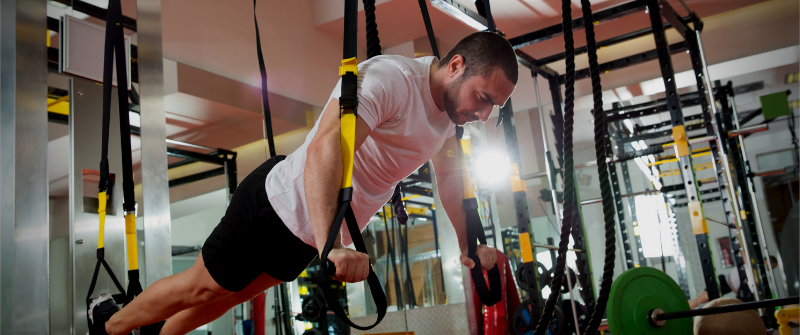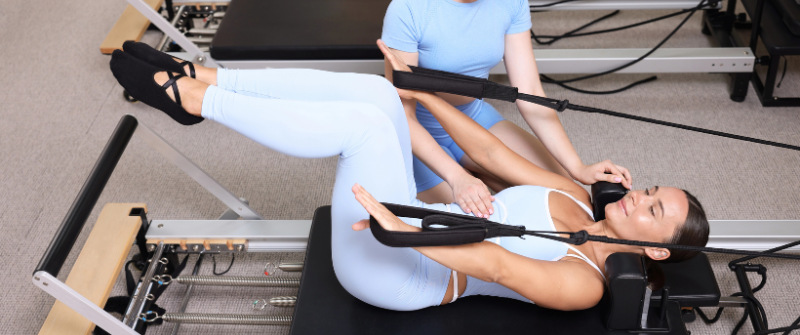
- by NEXO Team
- May 24, 2021
As a gym owner or manager, you always spend a lot of time thinking about the amount of money have to spend. It seems like there is always a bill due. You need to pay rent, utilities, staff members, insurance, and the list goes on. You probably have a list of new gym equipment that you'd like to purchase, but you hesitate to spend the money.
Buying new gym equipment can help you entice new members to join and protect them from old, failing equipment. Have you considered financing your new gym equipment? There are ways to save with gym equipment financing that you might not have considered. There are potential tax savings with gym equipment financing. Don't you love lowering your tax burden?
Here's a closer look at ways financing your gym equipment has the potential to lower your tax burden:

Section 179 of the Tax Code
The Internal Revenue Service (IRS) has a complex system of tax codes that allows individuals and businesses to write off certain items from their tax obligation. Congress and the IRS are constantly making changes to the tax code. This makes it confusing for the individual or gym owner to know what they can and cannot write off on their taxes.
The complicated tax code might be the reason you've never heard of Section 179. This section of the tax code allows businesses to deduct 100% of the cost of equipment financed in a specific year. This means the full purchase price of the financed equipment is deducted from your company's gross income.
For example, if you financed gym equipment with a purchase price of $10,000 and your gross income is $50,000, then you only need to pay taxes on $40,000. Depending on your income bracket, this can be substantial savings.
It's the goal of the IRS and the government to encourage business owners to invest in their businesses by buying or financing new equipment. These codes do change, so you might want to take advantage of them as quickly as possible. You don't want to miss out on the opportunity to get much-needed new gym equipment and save money on your taxes.
Now, there are some limits as to how much you can deduct. For the 2021 tax year, you can write off $1,050,000 in one year. There is a spending cap for equipment purchases and financing of $2,620,000. While there a maximums and caps, they're pretty generous for most small business owners, such as a gym owner or manager. You can easily finance the equipment you want and need while staying within the guidelines.
You might have already heard of this section. In the past, business owners called it the "SUV Tax Loophole" or the "Hummer Deduction." Many business owners were using this section to buy company SUVs and deduct the money from their taxes. However, the IRS has since tightened the section to ensure that business owners aren't buying expensive vehicles that are mostly for personal use.
To qualify for this deduction, the equipment must be used by the company at a minimum of 50% of the time. As a gym owner, when you finance equipment, this isn't going to be a problem at all. In fact, the IRS probably won't even question the percentage of usage because you need the equipment to run your business.
Claim 100% of the Depreciation During the Term of the Financing
You already know that when you drive a new car off the lot it loses several thousand dollars worth of its value. This is an easy way to look at the concept of depreciation. Anytime you buy something, it begins to drop in value almost as soon as you purchase it. This includes the new gym equipment that you're considering purchasing.
The government knows that equipment that small business owners need loses values, so the IRS and the tax code allow for the deduction of the lost value. Typically, you need to write off the depreciation over the span of several years.
For example, you buy a new air conditioning unit for your gym. It costs $10,000. The IRS might consider, depending on the current tax codes, that the unit will last for 10 years, and the IRS approves the depreciation on a yearly basis with varying percentages. However, the IRS doesn't typically allow you to deduct depreciation in such a nice neat package. You typically can deduct any depreciation the first year you purchase equipment and then only around 20% a year.

The Tax Cuts and Jobs Act makes it easy to deduct 100% of the depreciation on your newly financed gym equipment. The goal of this new tax act was to encourage business owners to purchase the new equipment they need. It allows your gym to grow while providing new sources of income for the equipment manufacturers. It's a win-win.
In 2021, you can deduct 100% of the depreciation. This is what's called bonus depreciation. The IRS and Congress don't approve these every year, but this is the year to take advantage of leasing new equipment and save some money on your yearly tax bill. Since there's no guarantee that this bonus depreciation period will remain in effect for years to come, it's a good idea to buy that equipment you've been looking at now.
There is a cap on how much you can spend. Just like Section 179, the cap is $2,620,000. However, if you're a struggling small business owner, and you end up showing a loss in 2021, you can apply part of the depreciation to later years. This might help to lower your future tax liabilities.
As a gym owner or manager, there's almost definitely some new gym equipment that you've been considering. The current potential tax benefits make it the ideal time to go ahead and finance that new equipment you've been dreaming about.
At Nexo Fit, we understand how important the right equipment is to your gym, so we offer the financing you need. When you're ready to make an investment in your business and lower your tax bill, contact us today.
Categories
Fill out a short form to contact us with your questions or to receive a customized quote.
Recent Posts
-
 Injury Waivers Aren’t Enough: Insurance Gaps Jiu-Jitsu Owners Overlook
January 21, 2026
Injury Waivers Aren’t Enough: Insurance Gaps Jiu-Jitsu Owners Overlook
January 21, 2026 -
 How Gym Risk Management Can Lead to Lower Premiums Over Time
January 21, 2026
How Gym Risk Management Can Lead to Lower Premiums Over Time
January 21, 2026 -
 Why Combat Sports Gyms Pay More for Insurance and How to Control Costs
January 21, 2026
Why Combat Sports Gyms Pay More for Insurance and How to Control Costs
January 21, 2026 -
 Functional Fitness Injury Trends That Impact Insurance Underwriting
January 21, 2026
Functional Fitness Injury Trends That Impact Insurance Underwriting
January 21, 2026 -
 Why Pilates Studios Face Unexpected Liability Despite Being Low-Impact
January 21, 2026
Why Pilates Studios Face Unexpected Liability Despite Being Low-Impact
January 21, 2026
